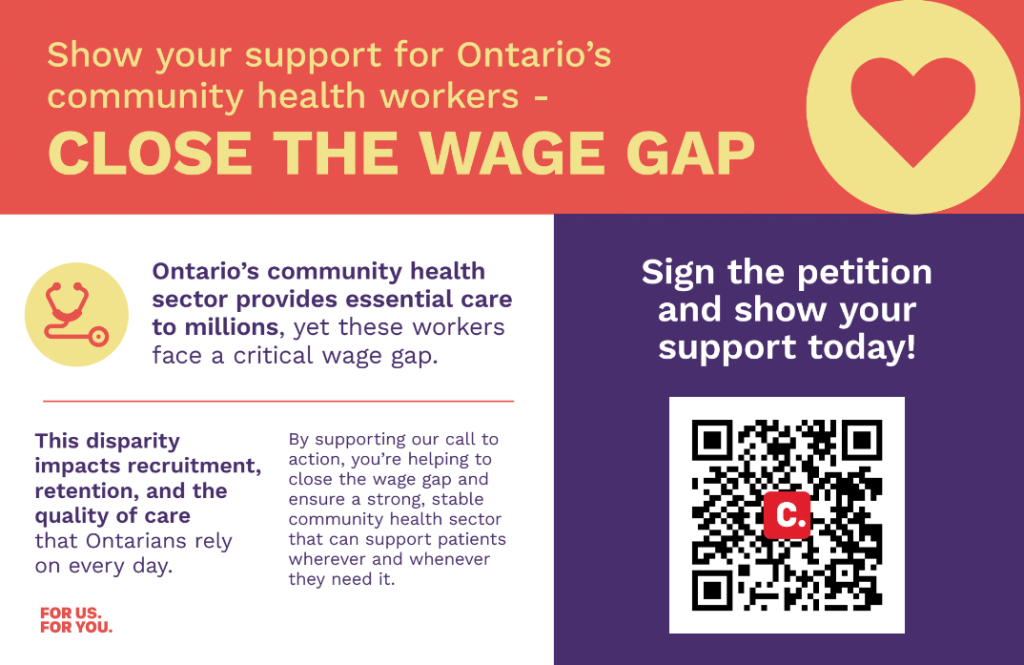Closing the Gap: The Urgent Need to Support Ontario’s Community Health Workers
November 15, 2024
Ontario’s community health sector is the backbone of health care for millions of people across the province. From primary care to mental health and addictions support, home care, and long-term care, the sector ensures that Ontarians receive the right type of care in the right setting. This helps keep people healthy, out of hospitals, and supported in their communities. But despite its crucial role, the sector is facing a growing crisis that threatens the care Ontarians and Brock Township residents rely on.
For Us. For You., a new campaign launched by ten provincial associations representing Ontario’s community health sector, is raising awareness of a staggering wage gap. Community health workers – over 200,000 nurses, personal support workers, social workers and other workers from across the province – are paid significantly less than their peers doing similar work in hospitals and schools, despite the challenging work they do. The wage gap is now over $2 billion, and the consequences are dire. Every day, workers are leaving their jobs in the community health sector, making it harder for patients to access the care they need.
This has been our experience at Brock Community Health Centre. As a smaller CHC, any vacancy can impact our services. We have kept Ontario Health East apprised of our vacancy rate, which positions are most impacted, the reasons for our staff departures, and our inability to hire. Wage is the number one factor second only to our rurality.
Community health workers are passionate about the work they do. They care deeply for their patients and clients. But the wages paid are simply not enough to keep up with the cost of living, despite doing the same or similar jobs to their colleagues in other parts of the health care system.
The community health sector serves some of Ontario’s most vulnerable populations – seniors, people with disabilities, those with chronic health conditions, and individuals facing barriers to accessing care. These individuals depend on this workforce to help them manage their health, live independently, and receive the right care in the right place.
The Ontario government needs to take immediate and decisive action to close the wage gap and support the future of community health care – and patients – in the province. Without action, we will see services cut, wait times grow longer, and even more overcrowding in our emergency departments and hospitals.
Closing the wage gap means a stronger, more resilient community health sector – one that will continue to be there for us all, now and in the future.

